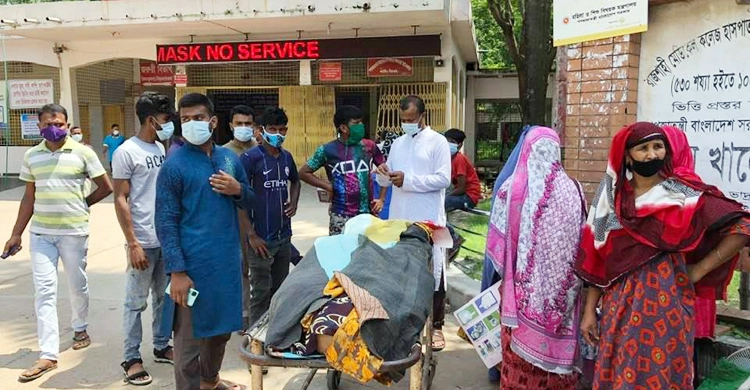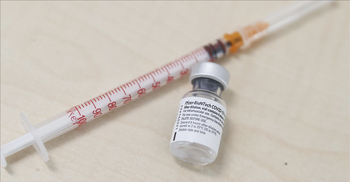RMCH records 17 more fatalities at Covid-19 unit

A number of 17 more people, including eight female, died at Covid-19 unit of Rajshahi Medical College and Hospital (RMCH) during the last 24 hours till 6 am today, taking the death toll to 509, so far, this month against total 405 in June, reports BSS.
RMCH Director Brig Gen Dr Shamim Yazdani told newsmen that four of those were the residents in Rajshahi, five from Pabna, three from Natore, two from Kustia and one each from Chapainawabganj and Bogura districts.
Among the deaths, five tested positive for Covid-19, 10 had its symptoms and two others in post-covid-19 complexities, he said, adding that yesterday's fatality figure was 18. They were aged between 11 and 65.
Yazdani said the hospital also had counted ever-highest 25 fatalities caused by Covid-19 on July 14 and June 29 last since the pandemic began.
Some 52 more patients were admitted to the designated Covid wards of the hospital afresh during the time, taking its number to 415, including 192 tested positive for Covid-19, against 513 beds.
Another 19 patients are undergoing treatment in the Intensive Care Unit (ICU) of the hospital. Thirty-two other patients returned home after being cured during the time.
Meanwhile, 124 people were found positive for Covid-19 after testing 429 samples in Rajshahi's two laboratories on Wednesday, showing 28.90 percent positivity rate against 22.76 percent on Tuesday, 22.51 percent on Monday, 30.78 percent on Sunday and 45.07 percent on Saturday.
Yazdani said over 8,000 liters of oxygen are being supplied to the Covid-19 patients every day on an average in the hospital at present but the daily oxygen demand was only 2,500 liters in around two months back.
The oxygen demand has gone up by around 3,000 liters, particularly during the last couple of weeks.
Demand for oxygen has been rising continuously for the last couple of months in the wake of a surge of patients in the hospital.
Yazdani opined over 60 percent of the new Covid-19 patients admitted to the Covid-19 unit of RMCH are from villages, reiterating that awareness among the villagers is less compared to the urban people.
Despite symptoms they hesitate to go for tests. "Only they are coming to the hospital when they feel worse. Then we have nothing to do for them, they are dying," he continued.
He said utmost attention should be given to the villages along with urban areas as the fatality rate among the villagers is more and the grave situation is aggravating day-by-day there.
Apart from the administration and health workers, public representatives, political activists and volunteers should come forward and work together, otherwise, the situation may be further more alarming, he mentioned.







